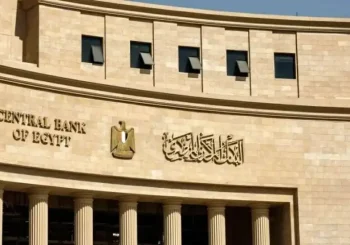Egyptian expatriates are more than citizens living abroad—they are an essential pillar of the country’s economy, largely through the remittances they send back home.
Remittances serve as a vital source of income for developing nations like Egypt.
By the end of 2023, the number of Egyptian expats reached 11.09 million according to the Central Agency for Public Mobilization and Statistics (CAPMAS). Globally, remittance flows have increased by three percent, amounting to USD 860 billion (EGP 41.55 trillion) in 2023, and are expected to grow further by 3.1 percent in 2024, according to the World Bank.
In the first seven months of 2022, Egyptian expatriates sent home an impressive USD 18.72 billion (EGP 904.34 billion) in remittances, a figure that surpasses the record-breaking USD 9.4 billion (EGP 454.10 billion) earned by the Suez Canal for the entire 2022/2023 fiscal year.
This contribution underscores the essential role expatriates play in sustaining Egypt’s financial stability, as their remittances exceed the annual earnings of one of the country’s most vital economic assets.
In May 2023, remittances increased for the third consecutive month, reaching USD 2.34 billion (EGP 113.04 billion), a notable jump from the previous month’s figures. By June 2023, remittances had grown by 5.9 percent compared to the same period in 2022, showing a continued upward trend of expatriate contributions.
One of the most immediate impacts of remittances is on individual households. The money sent home provides a vital source of income that meets the basic needs of millions of Egyptian families.
According to a 2024 study by Science Direct, remittances play a key role in improving access to education for families in developing countries, including Egypt. These funds help cover tuition fees, uniforms, school supplies, and transportation, making education more affordable. The World Bank highlights that remittance-receiving households often use this financial support for school expenses, enabling access to better-quality schools and learning opportunities, which is especially crucial for Egyptian families facing rising tuition costs.
Additionally, the International Organization for Migration (IOM) highlights that remittances are often invested in home improvements or small businesses, creating jobs and stimulating local economies at the grassroots level. This ripple effect, starting from individual households, boosts market activity and encourages entrepreneurship, thereby strengthening Egypt’s economic foundation.
Beyond supporting households, remittances play a critical macroeconomic role. Egypt, like many other developing nations, relies heavily on foreign exchange reserves to manage its balance of payments. Remittances help bolster these reserves, allowing the government to stabilize the Egyptian pound and manage import costs.
With high inflation and global economic uncertainty, remittances act as a buffer, giving Egypt greater flexibility to weather external economic shocks.







Comments (0)